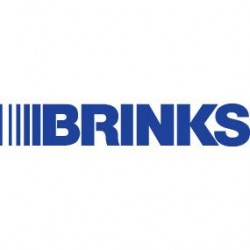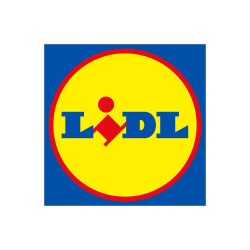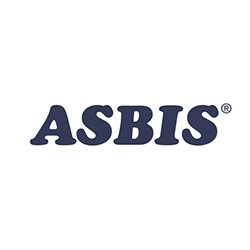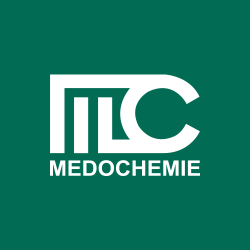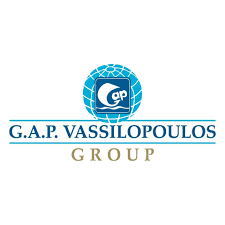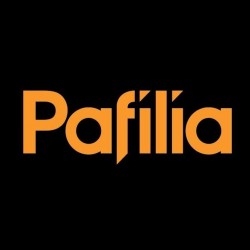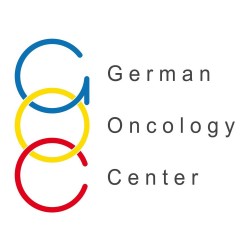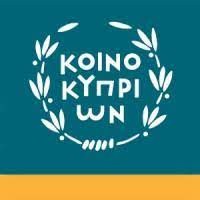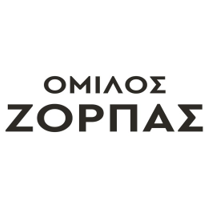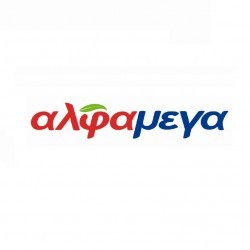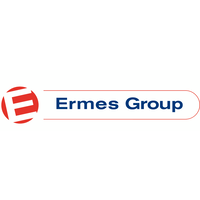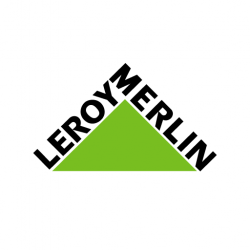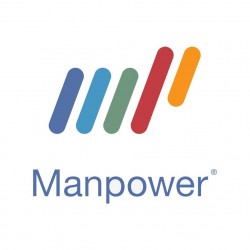Cyprus University of Technology (CUT) - Full Time European Research Area (ERA) Chair Holder Positionin the field of Digital Heritage
This job post is expired. You can search for other jobs here at www.carierista.com.
#CA04412 Type: Full time
Full Time European Research Area (ERA) Chair Holder Position
in the field of Digital Heritage
Applications are invited from candidates who possess the necessary qualifications in order to fill one (1) Full-time Researcher Position: Special Scientist for Research / Senior Researcher A / ERA Chair holder on Digital Cultural Heritage)at the newly established UNESCO and European Research Area Chairs on Digital Cultural Heritage within the Digital Heritage Research Laboratory (DHRLab) of the Cyprus University of Technology (CUT) in the research field of Digital Heritage and Cultural Informatics.
The selected scientist will work for fifty-four (54) months within the EU H2020 ERA Chair ‘Mnemosyne Project’, a unique EU-funded programme bringing together for the first time a worldwide network, aiming at implementing a multidisciplinary and intersectoral educational, research and training programme between academic research, creative industries and key Cultural Heritage stakeholders.
Description
Cultural Heritage is a strategic resource for Europe with high cultural, social, environmental and economic value. The era of Digital Cultural Heritage (DCH) is now well underway and the European research resource for DCH has grown significantly in recent years worldwide. But the visible contribution of the EU Widening countries to this effort remains relatively weak. The Digital Heritage Research Laboratory (DHRLab) at Cyprus University of Technology (CUT) www.digitalheritagelab.eu has been an exception in this respect, becoming a beacon in the Eastern Mediterranean and for Europe in general, in particular through its leadership of key initiatives in DCH research training and in EU policy co-ordination and support. While the Cypriot economy gradually recovers, in order to maintain and expand its leading role in DCH research, DHRLab needs further investment. This call for an ERA Chair is an ideal opportunity to ensure this by means of a well-designed and iterative process of strengthening its research capacity and restructuring of its role. Therefore, the EU ERA Chair Mnemosyne project will proceed from the appointment of an outstanding researcher and research manager as ERA Chair holder in 2019, who will attract, direct and maintain high quality human resources and negotiate and implement the necessary structural changes to achieve excellence on a sustainable basis. The project will be carried out over a period of 5 years. Following recruitment of the ERA Chair Research Team, a three-phase research programme centered on holistic documentation (knowledge management) of the DCH life cycle in support of existing and potential user needs, will be carried out and extensively evaluated, with strong attention paid to exploitation. Communication activities, will be strategically planned and refined from the outset of the work and will last throughout the project duration.
Position:
The ERA Chair will be recruited by the host organization of the Cyprus University of Technology in Limassol, Cyprus for the duration of fifty-four (54) months under a full employment contract with the possibility of extension. The Chair holder will work closely together with the Director of DHRLab and the team of the UNESCO Chair on DCH and be responsible for the planned research topics and areas. It is noted that for this purpose funding is included in the MNEMOSYNE project for a group of post-doctoral scholars and PhD researchers to assist the Chair, the team at DHRLab and the UNESCO Chair.
An outline of the research topics under consideration (subject to agreement with the ERA Chair) includes:
- Holistic structures and standardization
definition and creation of holistic documentation ‘pipelines’ for specific user communities;
- creation of standards for 3D documentation and knowledge management.
- DCH data acquisition
- advanced digitisation and approaches such as mass, crowdsourced and on-demand digitisation;
- methods for crowdsourcing content and allowing user-generated content for DCH in the cloud on cloud-computing for DCH, e.g. by leveraging popular photography;
- the use of UAVs and related technologies in capturing documentation;
- automated metadata extraction and crowd;
- realising the potential of big data management and opportunities created by the vast volume, variety and velocity of mainly unstructured new data, generated every day most for finding and using previously inaccessible European digital content;
- DCH data processing
- user-oriented metadata and ontology standards for the description and exchange of DCH data;
- metadata designs especially of language-based data close to human conceptual systems and gaining insights from data in natural language;
- innovative tools and methods to extract meaning from digital artefacts, including video recordings, audio recordings, digital images, text, multispectral and thermal
- information and 3D representations of objects or scenes;
- generation and presentation of localised DCH content and its documentation to enhance audience value (in services such as Europeana) for example through efficient and innovative acquisition and deployment of geospatial data.
- Data modelling
- data modelling and semantics, including those for Intangible Heritage and the modelling of motion for DCH;
- classification and typology of objects, sites and monuments and its impact on media display and environments where these can be exhibited;
- using immersive VR and AR technology (Mixed Reality – MR) to blend and/or emphasise dimensions and detail environmental experiences;
- interactive environments in DCH e.g. re-creating 3D space through spatial references, imaging and modelling.
- Knowledge management (interpretation)
- establishing meaningful narratives (storytelling) for DCH objects which are meaningful to identified user groups for interpretation purposes;
- using crowdsourcing and the Internet to provide documentation resources for experiencing, contributing and gaining understanding in cultural heritage scenarios;
- systems for managing and re-using complex documentation and deriving knowledge e.g. for monuments and sites;
- applications of Artificial Intelligence/Machine Learning in DCH;
- applying Big Data Analytics to DCH;
- the role and applications of Linked Open Data in enriching DCH information, linking exhibited content to other relevant content to provide greater understanding;
- curation of digital assets;
- linking exhibited content to other relevant content to provide greater understanding of the viewed item.
- Preservation
- documentation for the preservation of European heritage;
- the virtual or actual reconstruction of destroyed or degraded sites and artefacts including the digital restoration of important monuments destroyed during conflict protecting against or remedying looting and destruction;
- virtual ‘reunification’ of CH assets which have been scattered to different parts of Europe and the world.
- Use and re-use
- cost reduction and simplification of digital technologies;
- personalisation and interactivity of viewing experiences in DCH, including the use of social media;
- new types of User Experiences (UX) with DCH that arise from the current ‘hardware and software revolution’ in the realms of VR/AR; interface selection (e.g. Augmented Reality, holograms) to allow seamless blending of on-site and on-line dimensions;
- visualisation techniques and their combination in different contexts, drawing on the state of the art in technology and standards e.g. for Interactive Video (IV); Immersive VR (IVR); Augmented Reality (AR); 3D Real-time Editors (game-engines), Ultra High and Giga-Pixel Panoramas; infinite zooming images; VR Wearables and Gesture Recognition Interfaces;
- inter-disciplinary collaborative research to establish paradigms in socio-economic areas of DCH impact e.g. tourism, education, employment, economic growth;
- crowdsourcing, co-creation and Citizen Science;
- using innovative social platforms to exchange user experiences and support multidisciplinary approaches.
The Applicant should:
- Have completed at least a four or five-year education cycle (e.g. Diploma in Engineering, Master’s Degree etc.) from a recognized university in Geomatics, Computer- / Electrical Engineering, Computer Science, Surveying Engineering and/or BA or MA in Humanities with a focus on e-CH) with at least eleven years of continuous full-time research experience in the above fields, and very good language, communication and implementation skills;
- For this unique position, an earned Doctorate degree from a recognized University is required;
- The qualifications required for this position are the same as those required for the post of a full Professor at the Cyprus University of Technology and, in addition, the following qualifications are required:
- A total of at least eleven years of university / research work or experience of equal value after the award of the doctoral title, out of which, at least four shall be years of university work or holding a post in the rank of Professor in a recognized University or holding a position as a Senior Researcher in a recognized research organization;
- International recognition of scientific work of acknowledged merit, promising an important contribution to science: publication of works, such as articles in international pre-reviewed scientific journals of well-known reputation or monographs or books of internationally recognized publishing companies, substantiating notable autonomous research work.
- Ability to instruct and promote research, including the supervision of postgraduate students, significant contributions in research projects and track record in ensuring additional financing of research activities.
- Indications of international recognition of the candidate´s contribution to the research fields described or similar fields, such as research reports, invitations for scientific lectures/keynotes, assignment of the evaluation of articles, research reports/projects or doctoral theses, participation in committees for the publication of scientific journals or participation in the organisation of seminars, workshops and conferences.
- Significant contribution to the teaching and/or administrative/management work of a University or research center;
- Supervision/coordination of successfully completed of research projects or doctoral theses.
- Excellent knowledge of the English language at a proficiency level (spoken and written).
Benefits
The yearly gross salary for this position will be 78.000,00 Euro. From this amount employer and employee contributions to the Cyprus government funds will be deducted. A 13th monthly salary incorporated into the monthly gross salary. In addition, health insurance will funded by the program.
About the hosting institution:
Cyprus University of Technology (CUT), was established by law in 2004, and enrolled its first students in 2007. With its orientation towards applied research, the University aspires to establish for itself a role in support of the state and society in their efforts to confront problems, which cover all areas of science and technology. CUT involvement in research can be recognized from the fact that within the last four years, projects with more than 30M Euro have been funded. CUT is an advanced University equipped with the most modern infrastructures and technological equipment which makes it possible to be the strongest on the island in research, with specialized units directed by distinguished professionals. The Digital Heritage Research Laboratory (DHRLab), established in 2013, is directed by Dr. Marinos Ioannides and already works in the digital and holistic documentation of Cultural Heritage Objects as well as contributing to national and European policies for DCH. Moreover, the Lab is very active in 3D Reconstruction and HBIM with a special focus on semantics and symbolic representation.
UNESCO Chair on Digital Heritage: The main scope of this unique Chair is to extend the successful work of the DHRLab and address a full range of key aspects of novel research and innovative developments such as:
- the e-documentation and analysis of cultural heritage data for both tangible and intangible heritage;
- technical areas, including 2D and 3D virtual environments (tangible and intangible), archives and collections management systems, web and museum based interactive applications and language technologies;
- non-technical areas, including testing, economic and social impact evaluation in support of the development of the cultural heritage sector and its opportunities in tourism, entertainment and education;
Applications must be sent via email at: HRecruits@cut.ac.cy with the subject: “Application for Researcher Position (Special Scientist for Research – Senior Researcher A) Position – Department of Electrical and Computer Engineering and Informatics” no later than Friday 5th Αpril 2019, 12:00 (noon) which is the deadline for the submission of the applications.
For further information please contact Dr. Marinos Ioannides (Director of the UNESCO Chair on Digital Cultural Heritage) at email marinos.ioannides@cut.ac.cy and telephone number +357-25-002020


